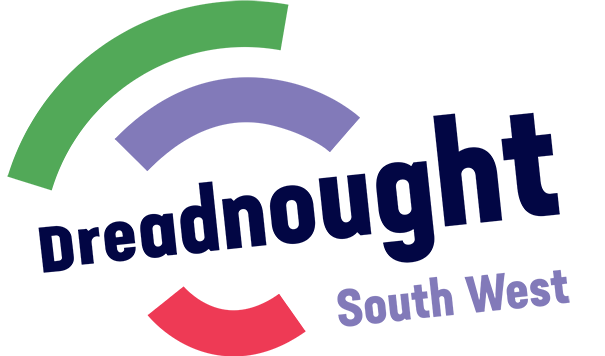| Location: | Teignmouth |
| Story Number: | Story-039 |
| Themes: | 1980s, Greenham Common, LGBTQ, Music, networks |
| Listen: | |
| Transcript: | Recorded by Carmen Talbot on 24.10.2018 Transcript by Jayde Stevenson I probably need to go back a little bit, um, in terms of how I got into the… I suppose the activism anyway, which was through the gay liberation movement, um, and being part of a… a women’s band – a lesbian band – which was very very political. And um, I came out in… in uh ’77… um, and… it still wasn’t okay to do that then and my partner and I at the time, who ended up being my musical partner um as well, um, we got beaten up very badly where we were living and ended up – the only place we were able to go was this wonderful gay men’s community in Brixton. It was the (inaudible) of squatting at that time so there were all these squatted houses of gay men who were very active in the gay liberation music… movement. And uh, that’s where we suddenly… we learnt about you know, the politics of sexuality and learnt words like ‘homophobia’ and ‘misogyny’ and how it all worked and just got involved in… in the activism, and we started writing about our experiences and there was just a huge interest and it took off really, so we recorded, um… four albums altogether, we set up the studio, we toured internationally, um, but that’s how it all started. Well, I was very active in um the women’s movements and the gay movements in London from about um 1977, um, until I left in 1989, uh… mainly through music. We set up a… a recording studio and music resource for women and girls to train them in sound technology because there were precious few women… um… in that field and we got funding from what was then the GLC Greater London Council. And part of that grant, as well as… uh setting up the recording studio and recording albums and touring a lot, we also provided many many music workshops. Um mainly voice, percussion, but… and recording workshops, um, and in the course of doing that, we were invited to Greenham Common to actually give (laughs) some workshops there. We did participate in one of the great big protests where you know, we all kind of circled the… the base… um, but I did go there a couple of times with um… we were part of this band called Ova – that’s what we were called. And we… we actually tried to give workshops there, sort of… and we got… they were evicting the women at the time, you know, we got disrupted several times during the workshop, and then we just picked everything up and moved somewhere else and continued and went on again. What we were trying to do with the studio was empower women, um to… yes learn, take up instruments, cos at that time – it’s hard to think now but you know, there’s a real, um, taboo against women playing electric guitars or drums, it was a real fight to be able to do that. Notes: Greenham Common Women’s Peace Camp https://en.wikipedia.org/wiki/Greenham_Common_Women%27s_Peace_Camp Find out more about Rosemary’s band Ova and some of their songs from Greenham http://www.fredsakademiet.dk/abase/sange/greenham.htm |
